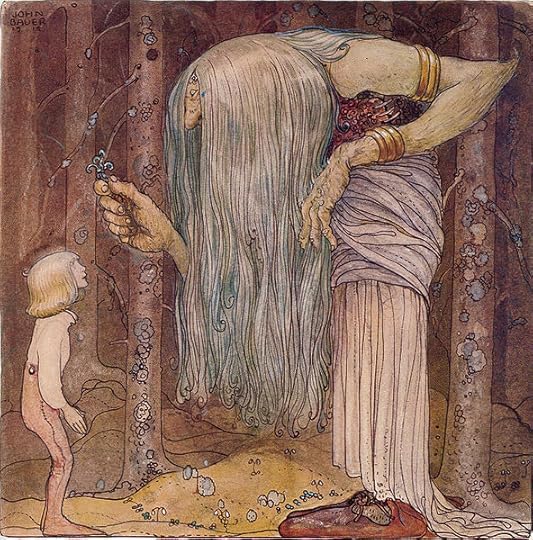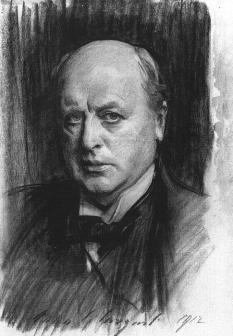How do you manage your inner critic?

“Here is a piece of a troll herb which nobody else but me can find” (Source: Wikimedia)
Before I disappear once more in my teaching trapdoor, I would like to table a big question about the writer’s inner process. In particular the process of writing in the first stages when the germ of a new story must be tended to with utmost care and caution lest it should die an early death.
One of the characteristics of this stage is the confrontation with the “Inner Critic” (for lack of a better term—better term anyone?) who asks all manner of grown-up, sharp, civilized questions and who evidently looks at the beloved germ with the eyes of a gardener rather than a Creator. Clearly, both inner critic and inner creator are needed to complete the work. As Dorothy Brande (“Becoming a Writer”, 1934) pointed out, it’s deadly to have them both in the room at the same time. However, for the practicing writer, they are of course both present at all times.
[image error]
“Blitzkrieg”: the danger of sudden collapse.
While I have encountered this issue with my shorter fiction, it didn’t bother me much then: with all short forms, the Creator can move in and can grow the whole thing comparatively quickly; or, if you prefer military metaphors: the short form knows the successes of “Blitzkrieg”. Of course, that’s not the whole story, but in my experience it is easier with short pieces to lay a strong foundation so that when the inner critic arrives on the scene, he can hardly do too much damage. At least this is my early analysis of the problem.
For longer forms of writing, the long ‘short story’ even, or the novella or (worst of all) the novel, I do not have current have an analysis or recipe; my method currently is to do all my plotting and structuring in English but switch to German when I do my trance work, the actual writing. Somehow, crossing the language barrier disables the inner critic rather effectively.

Gollum! Gollum!
Hence my question: how do you manage your inner critic during the first stages of writing (say: during first draft)? Do you deflect the critic? Do you integrate the critic? And how exactly do you do it?
A always, all stories count, all experiences lead to Rome! All artists must jump through similar hoops—perhaps you have a creative idea even if you’re not a writer?
 PS. I do not want to withhold the voice of a grand master —though this quote from one of Henry James’ letters concerns external criticism, it also reveals the shape and structure of his INNER stronghold:
PS. I do not want to withhold the voice of a grand master —though this quote from one of Henry James’ letters concerns external criticism, it also reveals the shape and structure of his INNER stronghold:
«…I know tool perfectly well what I intend, desire and attempt, and am capable of following it absolute absence of perturbation. Never was a genius — if genius there is — more healthy, objective and (I honestly believe) less susceptible of superficial irritations and reactionary impulses. I know what I want — it stares one in the face, as big and round and bright as the full moon; I can’t be diverted or deflected by the sense of judgments that are most of the time no judgments at all.» —Henry James (1878)
James’ central proposition I believe is “I know what I want”. This points at a solid position of thematic, philosophical certainty which over the period of many years of craftsmanship turned into imperviousness against the destructive impulses of critics. I think successfully dealing with the inner critic always comes first and will help you deal with the Outer Critics, too.
[Cross posted at Fictionaut][See also: How to start a novel]




